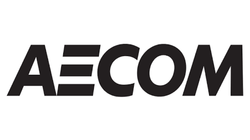AECOM grounds its solutions approach with geotechnical expertise
| AECOM grounds its solutions approach with geotechnical expertise_approved | 39 KB | Download | |
| AECOM recently had to deal with a high-risk dolomitic site in Centurion. | 3.05 MB | Download | |
| An example of reclamation and ground improvement. | 1.46 MB | Download | |
| Foundations have to be optimised while remaining cost-efficient. | 2.44 MB | Download | |
| Dr Kim le Roux, AECOM Environment and Ground Engineering Lead for Africa. | 10.78 MB | Download |
The consulting engineering company underlines the importance of geotechnical engineering in its total service offering, according to Dr. Kim le Roux, Environment and Ground Engineering Lead for Africa. She has worked as a geotechnical professional for the past 20 years, most recently in Western Australia, with a particular focus on the mining industry.
A truly multidisciplinary company like AECOM is much more capable of developing total solutions for its clients. “I have a core understanding of geotechnical engineering and the benefits of integrating it with our structural and civil engineering capabilities. Working together, we are able to optimise solutions make our construction projects far more cost-effective from an EPC perspective,” Dr. le Roux elaborates.
Rather than constituting a specialist service, geotechnical engineering is deployed in support of AECOM’s overall civil infrastructure capabilities. “Essentially such an integrated solutions approach allows us to offer our clients a means of managing any attendant risk, due to the smooth interface between the different disciplines,” Dr. le Roux highlights.
Geotechnical or ground engineering involves quantifying the material parameters of a site, which can range from different soil types to rock. Important considerations here are strength, deformation, and variability. As an example, Dr. le Roux points to a recent construction project in Centurion that consists of a high-risk dolomitic site. “Here we had to liaise closely with the client in order to optimise the foundations to perform according to expectations, while remaining cost-efficient.”
Given the cost associated with foundation work, a balance has to be struck between the expense incurred versus the property value of the development site itself. “This is where ground engineering plays such a crucial role in terms of initial site ‘screening’,” Dr. le Roux adds. A detailed geophysical investigation may be called for in order to determine the exact nature of the material. This is followed by an intrusive geotechnical investigation to obtain a better idea of the variability of the material, and its precise parameters.
Another consideration is how this material will support the structure to be built, and whether or not it can be used as construction backfill. The details of such an investigation are then submitted to AECOM’s engineering team, which runs various models as to how any structure will perform. Ground, structural, and civil engineering input is combined in order to optimise the best solution.
The current trends in ground engineering are refining the technology for non-intrusive investigation, and improving the predictability of the results obtained. In collaboration with the larger Middle East and Africa region, AECOM has developed a high-end sensing capability that is ideal for larger sites. Innovation has also focused on foundation design itself, whereby technology applied successfully to the mining industry is redeployed in civil infrastructure and vice versa, in order to maximise any synergies.
Growth opportunities for geotechnical engineering are aligned with AECOM’s overall strategy for growth in Africa, which focuses on largescale civil infrastructure requirements in Southern and East Africa, particularly in terms of ancillary infrastructure such as road, rail, and port developments for oil and gas expansion projects. Le Roux reveals that AECOM has submitted a number of geotechnical-specific tenders.
There is a general shortage of expertise in the rest of Africa, where skilled engineers are often capable, but limited by their localised experience, with little exposure to alternative materials and methods. “In this situation, it becomes more difficult to introduce new technology, because innovation is not supported. A distinct opportunity exists for AECOM in this regard, which has the institutional capacity to collaborate with local service providers to expand their technical capability,” Dr. le Roux concludes.
Ends
Notes to the editor
To download hi-res images for this release, please visit http://media.ngage.co.za and click on the AECOM link to view the company’s press office.
About AECOM
AECOM is built to deliver a better world. We design, build, finance and operate infrastructure assets for governments, businesses and organizations in more than 150 countries. As a fully integrated firm, we connect knowledge and experience across our global network of experts to help clients solve their most complex challenges. From high-performance buildings and infrastructure, to resilient communities and environments, to stable and secure nations, our work is transformative, differentiated and vital. A Fortune 500 firm, AECOM had revenue of approximately $18.2 billion during fiscal year 2017. See how we deliver what others can only imagine at aecom.com and @AECOM.
Media Contact
Renay Tandy
NGAGE Public Relations
Phone: (011) 867-7763
Fax: 086 512 3352
Cell: 082 562 5088
Email: renay [at] ngage [dot] co [dot] za
Web: www.ngage.co.za
Browse the NGAGE Media Zone for more client press releases and photographs at http://media.ngage.co.za

